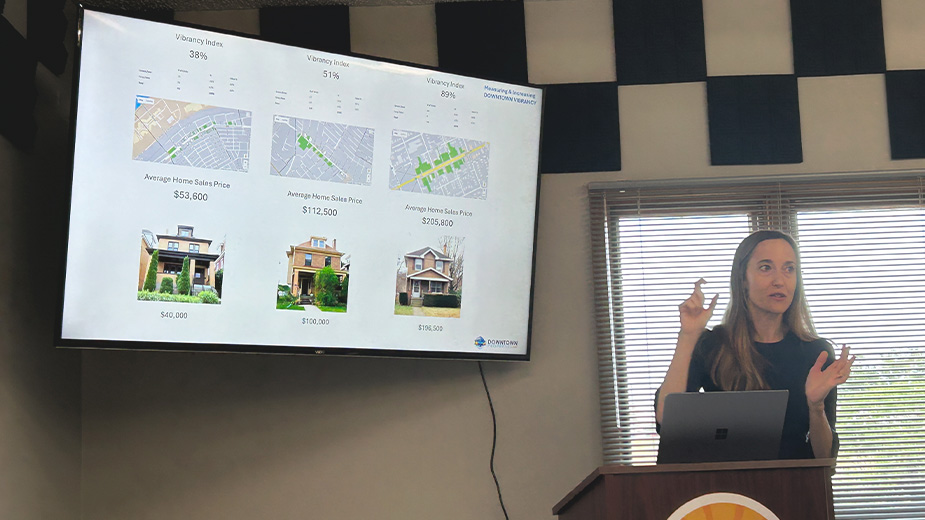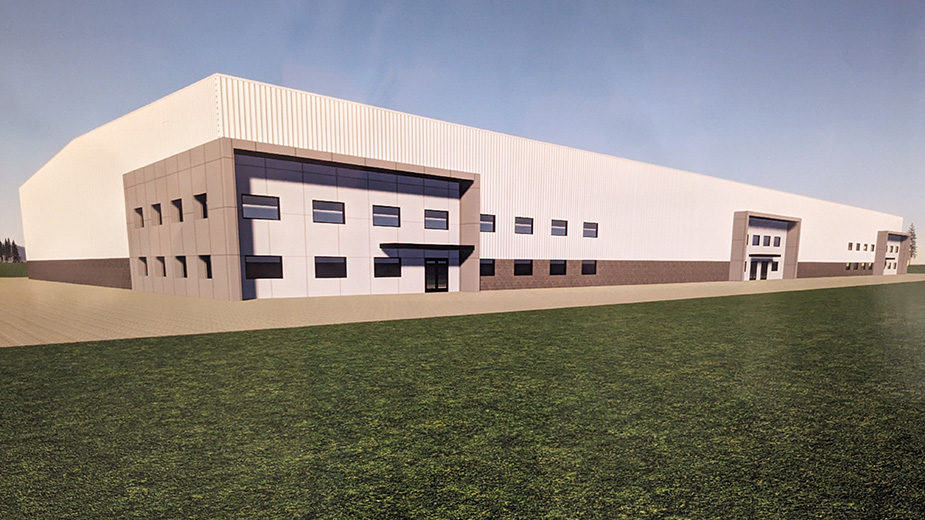Rethink Economic Development, Community Leaders Told
YOUNGSTOWN, Ohio – A paradigm shift is needed regarding economic development in the Mahoning Valley and the nation, says Donald Iannone, a consultant with 40 years in the field.
“The shift is that we need to recognize that we have to raise the level of prosperity overall,” he observes. “We have to recognize that prosperity is not going to just happen. Prosperity is not an outgrowth of the economic model that we have right now, so we have to build it in.”
At Youngstown State University Monday, Iannone led an economic development workshop sponsored by Eastgate Economic Action Group, Mahoning Valley Economic Development Corp. Western Reserve Port Authority and YSU’s Regional Economic Development Initiative.
Iannone describes himself as a former economic development hit man, referencing John Perkins’ book Confessions of an Economic Hitman, which chronicled Perkins’ career working on behalf of large corporations to convince developing nations to accept loans for projects that primarily benefited wealthy families and political elites in those nations.
“Economic developers do that on a much larger scale,” Iannone said. “It’s not much different.”
Some 70 people from local businesses, nonprofits, labor unions, foundations and governmental organizations attended the workshop.
The business community – one side of what he calls the “economic development equation”– has largely dominated the decisions around economic development, Iannone said. But creating widespread prosperity in the Mahoning Valley “takes everything that everyone in this room is doing.”
Community stakeholders outside of the business community are also involved with economic development, whether they realize it or not. They, too, are helping communities and people become more prosperous – which is a key to the area’s future, he said. “Communities and people must grow more prosperous,” he said.
Youngstown and the Mahoning Valley have made strides since 2000 when he last worked in the area, Iannone said. He pointed to the work of foundations such as the Raymond John Wean Foundation, the work of the Youngstown Business Incubator and the expanding role of Youngstown State University.
“Your schools are probably the single biggest long-term asset that you have for economic development,” he said. Universities and trade schools have big roles to play in increasing human capital and knowledge.
The decline in population is a continuing reality for the Mahoning Valley, however, and that affects job growth, Iannone said. If the Youngstown-Warren-Boardman metropolitan area had grown at the same rate as the nation between 2001 and 2015, 46,389 jobs would have been created, including 7,500 in manufacturing. Iannone describes a “slow-growing industry mix” as a key part of the problem.
“Industries that are most concentrated here have seen significant declines in employment,” he said. In contrast, emerging industries are creating the most jobs in the area. Communication services represent the leading tradable industry in the Mahoning Valley.
Another problem here is the largely low-wage, low-skill nature of the post-Great Recession recovery, Iannone said. “It’s the quality – it has to do with the kind of jobs we create.” This mirrors national trends where the percentage of low-wage job growth has outpaced middle and high-wage jobs.
Inequality continues to rise, wages for most workers remain stagnant while inequality rises, and compensation has failed to keep pace with employee productivity since the mid-1970s, according to the Economic Policy Institute.
Broadly based prosperity is the key to regional prosperity, and economic development is not doing enough to address the situation, Iannone said. Detroit and other cities in the Rust Belt are trying to meld economic development to concepts such as inclusive growth, which, he pointed out, is something the Raymond John Wean Foundation has championed here.
“A new narrative is needed that links prosperity to regional and economic growth and development,” Iannone said, but it must be based on productivity. Iannone points to the model of the Lincoln Electrical Co. in Lorain. The company became known for doing the most of any American manufacturer to match employee compensation to employee productivity and company profitability. “It’s that type of thing that we need to reinvent,” he said.
Iannone encouraged his audience to “come out of your silos” and engage with other community stakeholders in efforts to advance regional economic development.
He was invited by Eastgate as part of its effort to improve continuing education pertaining to economic development, said Sara Wenger, economic development program manager with Eastgate Regional Council of Governments.
“One of our actions steps for the next five years is to have more opportunities to learn about economic development,” she said.
Wean Foundation President Jennifer Roller found the presentation encouraging and educational. “There’s a good mix of foundation people and some of the businesses because sometimes we have these conversations separately,” she said. “Today, you heard a conversation about how we could all contribute.”
Pictured: Donald Iannone, consultant, Donald T. Iannone & Associates.
Copyright 2024 The Business Journal, Youngstown, Ohio.



